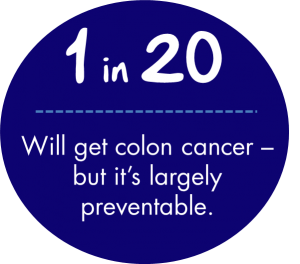-
The Importance of Medical Screening
Medical or health screenings are exams and tests that are performed on a routine basis despite the absence of symptoms. Routine health screenings are a cornerstone of preventive healthcare because they allow doctors to detect medical problems as early as possible—often before symptoms develop. With early detection, patients can receive prompt treatment to support their wellness. Your primary care physician should recommend health screenings that are appropriate for you, but many doctors fail to stay on top of patient records. Medical malpractice lawyers encourage their clients to be proactive patients.Take the initiative to ask your doctor if you’re due for any health screenings.
 Some common health screenings include tests for blood pressure, cholesterol levels, and blood glucose. Patients with high blood glucose levels often don’t recognize the signs and symptoms of this problem, and patients with high blood pressure or abnormal cholesterol levels won’t experience symptoms. There are also routine cancer screening tests such as mammography, colonscopy, PSA testing, and Paps Smears which should be discussed with your doctor. Despite the lack of symptoms, these conditions can cause serious, long-term problems and sometimes cause death if left untreated.
Some common health screenings include tests for blood pressure, cholesterol levels, and blood glucose. Patients with high blood glucose levels often don’t recognize the signs and symptoms of this problem, and patients with high blood pressure or abnormal cholesterol levels won’t experience symptoms. There are also routine cancer screening tests such as mammography, colonscopy, PSA testing, and Paps Smears which should be discussed with your doctor. Despite the lack of symptoms, these conditions can cause serious, long-term problems and sometimes cause death if left untreated. Diagnostic failures and medication errors are just two types of medical malpractice that patients may encounter. Call the malpractice law firm of Pegalis & Erickson, LLC on Long Island, New York at (516) 684-2900 for a free case review.
-
Fetal Distress: Its Causes and Solutions
The welcoming of a newborn into the world should be a joyous occasion, but some families are affected by acts of medical malpractice during labor that can lead to serious consequences. Fetal distress is one example of a grave medical condition that doctors must quickly recognize and treat to prevent additional complications. If you feel that your child was affected by birth injuries because of a doctor’s negligence, consider speaking with a legal advocate about your family’s rights.
Fetal Distress
Fetal distress is a broad term that means the baby isn’t getting enough oxygen. Fetal distress usually develops during labor, but may also arise during the third trimester. Babies who are in distress will have a weak heartbeat and reduced movement, as evidenced by a reduced kick count. Causes
Causes
There are many factors that can contribute to fetal distress, including anemia and high blood pressure of the mother. Fetal infections, umbilical cord compression, and placental abruption are other possible causes. Expecting mothers of multiples and those who develop gestational diabetes are at an increased risk. Fetal distress is also associated with oligohydramnios, which refers to a lower level of amniotic fluid surrounding the baby.Treatments
Fetal distress is a serious health risk that requires prompt medical intervention. If the doctor fails to diagnose and treat fetal distress in a timely manner, the baby is at a higher risk of developing brain injuries, including brain damage that can cause cerebral palsy or mental retardation. Doctors who do detect fetal distress can treat it by administering supplemental oxygen and intravenous fluids to the mother. It’s also treatable with amnioinfusion, which involves introducing fluid directly into the amniotic cavity to free a compressed umbilical cord. If these treatments do not work, the doctor must perform an emergency C-section.If your baby has been affected by birth injuries in the Long Island, New York area, you can find the legal solutions you’re looking for at Pegalis & Erickson, LLC. We are a team of medical negligence lawyers who have made it our life’s work to advocate on behalf of families affected by medical malpractice. You can reach us at (516) 684-2900 to request a no-charge case review.
-
Myths About Cerebral Palsy
Cerebral palsy is a group of movement disorders that can stem from birth injuries, which may be the result of medical malpractice in some cases. Many children are diagnosed with cerebral palsy each year, yet the misconceptions about it are still widespread. It’s often assumed, for instance, that children with cerebral palsy will never improve their functional abilities. Although there is no cure for cerebral palsy, intensive and ongoing therapy can help these children reach their full potential. Some children can benefit from surgeries to improve their movement abilities.
 Another common myth about people with cerebral palsy is that they will never be able to lead a productive life in the community. In fact, patients with cerebral palsy all have varying levels and types of impairments. With the right services, many of them go on to enjoy independence, hold down a job, and start families.
Another common myth about people with cerebral palsy is that they will never be able to lead a productive life in the community. In fact, patients with cerebral palsy all have varying levels and types of impairments. With the right services, many of them go on to enjoy independence, hold down a job, and start families. The cerebral palsy lawyers at Pegalis & Erickson, LLC work closely with families to help them secure the compensation they need to arrange for specialized medical care for their children. If your child has been diagnosed with a birth injury in Long Island, New York, call us at (516) 684-2900.
-
Knowing the Signs and Risks of Colorectal Cancer
March is officially recognized as National Colorectal Cancer Awareness Month. It’s an ideal time to take a few minutes to learn more about this deadly disease and the importance of being a proactive patient. Colorectal cancer, which affects the colon or rectum, is life-threatening, but early detection can save lives. By becoming a proactive patient, you can reduce the risk that misdiagnosis and other forms of medical malpractice will adversely affect your wellness.
Signs and Symptoms
Like other forms of cancer, colorectal cancer often doesn’t cause any noticeable symptoms until the disease has already reached an advanced stage. Therefore it is important for patients to be alert to unusual changes in their daily routine and to consult a doctor as needed. Some of the possible indicators of colorectal cancer include very narrow stools, rectal bleeding, bloody stools, diarrhea, or constipation. Some patients may experience the feeling that bowel movements are incomplete. Abdominal cramps, fatigue, weakness, and unexplained weight loss are other possible indicators.
Misdiagnosis and Delayed Diagnosis
Based on a patient’s symptoms, medical history, and physical exam, a doctor should refer the patient for appropriate diagnostic tests to check for colorectal cancer. The gold standard of colorectal cancer diagnosis is the colonoscopy. Unfortunately, primary care physicians sometimes neglect to consider cancer as a possibility. They may instead diagnose patients with inflammatory bowel syndrome (IBS), anal fissures, hemorrhoids, or diverticular disease.Risks
When a patient isn’t referred for necessary medical tests for colorectal cancer and the accurate diagnosis is delayed, that patient may miss the opportunity for timely cancer care. Early treatment can make the difference between life and death for a colorectal cancer patient. When colorectal cancer is detected in its early stages, minimally invasive surgery may be all that is needed to treat it. As the cancer spreads, the patient requires more invasive and life-altering treatments that are less likely to result in a favorable prognosis.A cancer misdiagnosis is devastating, but the medical negligence lawyers at Pegalis & Erickson, LLC can empower your family. If you suspect that medical malpractice may have caused a loved one’s wrongful death or delayed cancer diagnosis, please call us today at (516) 684-2900. Our malpractice law firm is in Long Island, New York, but is privileged to serve families beyond New York.
Recent Posts
Popular Posts
- Annamarie Bondi-Stoddard Named One of The Top Attorneys by New York Metro Super Lawyers!
- A Look at Common Orthopedic Birth Injuries
- Steve Erickson named only Lawyer of the Year on Long Island, NY for Personal Injury Litigation
- Reducing the Risk of Medical Malpractice
- How Improper Prenatal Care Can Lead to Birth Injuries
categories
- Uncategorized
- Infographic
- Patient Safety
- Patient Health
- Stillbirth
- Birth Injuries
- Medical Malpractice
- Medical Negligence
- Event
- Erb's Palsy
- Injury
- ER
- Video
- Cancer Misdiagnosis
- Medication Errors
- Cerebral Palsy
- Medical Negligence Lawyer
- Anesthesia Injuries
- Brachial Plexus
- Prostate Cancer
- About Us
- Men's Health
- Skin Cancer
- Breast Cancer
- Misdiagnosis
